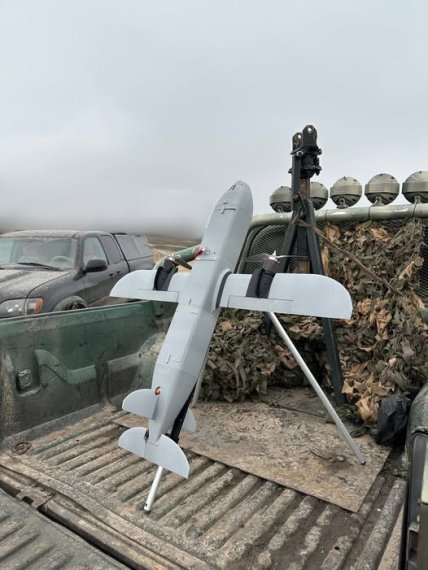Are zenith drones the future of combating enemy UAVs? Discover how Ukraine is testing innovative solutions (photos, videos).
The development of affordable anti-drone drones capable of hunting down UAVs like the Shahed began to gain attention back in October. This year, anti-drone FPV drones have already been deployed on the battlefield.
"Telegraf" has gathered information about the use of anti-drone drones, their necessity, and the progress of the "Anti-Shahed" development. The fighters of the 93rd Brigade "Kholodny Yar" were among the first to utilize anti-drone drones against the enemy's "eyes." Reconnaissance drones have started flying at higher altitudes, making the use of conventional anti-aircraft systems challenging. In this regard, anti-drone FPV drones are more effective due to their speed. Furthermore, the military considers them to be more cost-effective. FPV drones are particularly efficient against reconnaissance UAVs like "Orlan-10" and "Zala."
For the Shahed-136, a slightly different approach is needed, as it is a kamikaze drone weighing 200 kg. Ukraine is developing its own models while testing foreign designs. The Sting UAV, which was reported to be in development this fall, is expected to have a pyramid shape, take off like a rocket, and is designed to fly up to 300 km/h in order to catch up with the Shahed-136.

The state military technology development cluster Brave1 recently announced tests of the German-made anti-drone Tytan. Its identification was conducted by "Defense Express." It is noted that it will be capable of hunting both Shahed-136 and reconnaissance drones.

The drone is reported to have a speed of 300 km/h and an operational range of 20 km. These specifications exceed those stated by the manufacturer: range — 250 km/h, radius — 15 km, and explosive weight — 1 kg. Among future plans is the integration of automatic targeting based on machine vision. The low cost of the drone is achieved through 3D printing technology.
Previously, "Telegraf" spoke with military expert Ivan Stupak. He emphasized that Ukraine needs not only to develop an anti-drone interceptor but also to scale up production. Russia has ramped up its production of "Shaheds" to nearly a hundred per day. Ukraine needs to produce no fewer anti-drone drones.